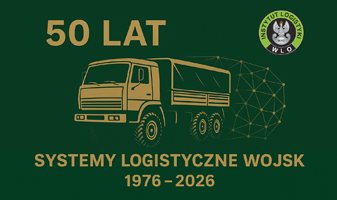ARTYKUŁ ORYGINALNY
Quality Assurance in NATO Education and Training:
Towards Strengthening Joint Capabilities
1
Department on Classified Information Protection, National Academy of Security Service of Ukraine, Ukraine
2
Scientific and Organizational Center, National Academy of Security Service of Ukraine, Ukraine
A - Koncepcja i projekt badania; B - Gromadzenie i/lub zestawianie danych; C - Analiza i interpretacja danych; D - Napisanie artykułu; E - Krytyczne zrecenzowanie artykułu; F - Zatwierdzenie ostatecznej wersji artykułu
Data nadesłania: 14-01-2025
Data ostatniej rewizji: 27-06-2025
Data akceptacji: 18-09-2025
Data publikacji: 30-09-2025
Autor do korespondencji
Valentyna Kravets
Department on Classified Information Protection, National Academy of Security Service of Ukraine, M.Maksimovych, 03022, Kyiv, Ukraine
Department on Classified Information Protection, National Academy of Security Service of Ukraine, M.Maksimovych, 03022, Kyiv, Ukraine
SLW 2025;62(1):5-22
SŁOWA KLUCZOWE
DZIEDZINY
STRESZCZENIE
The article explores the integrative role of education and training in NATO’s initiatives on achieving interoperability. The research niche is NATO's quality assurance procedures in education and training as a mechanism for enhancing interoperability and strengthening defense capabilities. The study aims to assess the current implementation of NATO quality standards in Education and Training Facilities (ETFs) and justify the expediency of the accreditation procedures. The hypothesis is that existing quality assurance practices contribute to both the integration of various ETFs affiliated with NATO into a cohesive education area and the enhancement of the Alliance’s capabilities.
The methodology combines a review of relevant scientific literature and NATO regulations with descriptive statistical analysis of data from the NATO Quality Assurance Hub and the Education and Training Opportunities Catalogue. Dialectical, formal-logical, and systemic-structural methods are applied to interpret the findings.
The results indicate that NATO Education and Training Facilities and Centres of Excellence are at the forefront of implementing NATO quality standards. These institutions, designed to address the Alliance’s training needs, serve as core drivers of its strategic educational objectives. Rather than enforcing curricular uniformity, NATO’s quality assurance procedures enhance institutional management while upholding academic autonomy. Due to this, military education providers may also seek accreditations aligned with other international or national quality standards.
The study concludes that NATO’s quality assurance procedures foster a unified training environment and complement other frameworks on interoperability. These efforts contribute to strengthening the Alliance’s joint capabilities by promoting the integration of partner countries into NATO’s security community.
Udostępnij
Przetwarzamy dane osobowe zbierane podczas odwiedzania serwisu. Realizacja funkcji pozyskiwania informacji o użytkownikach i ich zachowaniu odbywa się poprzez dobrowolnie wprowadzone w formularzach informacje oraz zapisywanie w urządzeniach końcowych plików cookies (tzw. ciasteczka). Dane, w tym pliki cookies, wykorzystywane są w celu realizacji usług, zapewnienia wygodnego korzystania ze strony oraz w celu monitorowania ruchu zgodnie z Polityką prywatności. Dane są także zbierane i przetwarzane przez narzędzie Google Analytics (więcej).
Możesz zmienić ustawienia cookies w swojej przeglądarce. Ograniczenie stosowania plików cookies w konfiguracji przeglądarki może wpłynąć na niektóre funkcjonalności dostępne na stronie.
Możesz zmienić ustawienia cookies w swojej przeglądarce. Ograniczenie stosowania plików cookies w konfiguracji przeglądarki może wpłynąć na niektóre funkcjonalności dostępne na stronie.


